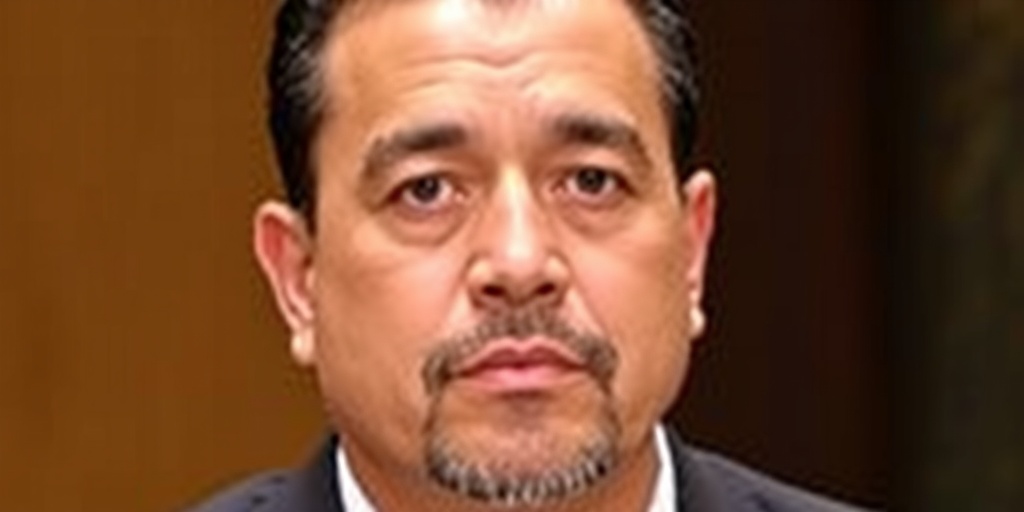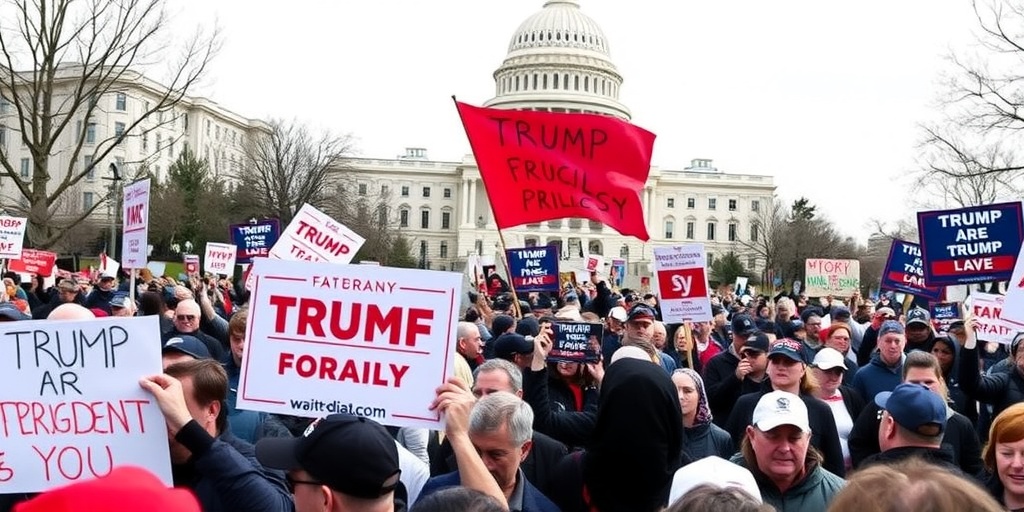Now Reading: Prosecutors Seek 7-Year Sentence for George Santos
-
01
Prosecutors Seek 7-Year Sentence for George Santos
Prosecutors Seek 7-Year Sentence for George Santos

George Santos Faces Over Seven Years in Prison Following Fraud Conviction
Federal prosecutors have requested a prison sentence exceeding seven years for George Santos, the former Republican congressman from New York, whose political career disintegrated amid revelations of numerous fabrications. Santos is set to be sentenced on April 25, concluding a criminal case that began in 2023. He had previously pleaded guilty to charges of wire fraud and identity theft, admitting to a multitude of fraudulent activities, including embellishing his past and misappropriating funds from donors.
In a court filing, prosecutors from the Eastern District of New York sought a sentence of 87 months—approximately seven and a quarter years—asserting that this punishment is warranted given the seriousness of Santos’s unprecedented crimes. Prosecutors highlighted that the former congressman’s deceptive actions undermined the integrity of the electoral process, stating, “He lied to his campaign staff, his supporters, his putative employer and congressional colleagues, and the American public.” The severity of these crimes necessitated a substantial sentence, they argued, to prevent future instances of fraud.
Santos, 36, has remained defiant throughout the legal proceedings. He insisted on his innocence while his various falsehoods emerged, yet on August 16—before he pleaded guilty to two felony counts—he acknowledged the extent of his wrongdoing. His crimes included misleading supporters about his fundraising efforts and misusing donations for personal gain. Prosecutors characterized his conduct as making “a mockery of our election system,” stressing the need for accountability in light of his actions.
The case against Santos was initiated while he was still serving as a representative in Congress. He was charged with 23 felony counts, a daunting indictment that reflected the scale of the allegations surrounding him. Most critically, this “unparalleled” case of dishonesty led to charges that significantly impacted his political career. Santos’s once-promising path in national politics took a sharp downturn following a barrage of accusations regarding his truthfulness.
In a separate court filing, Santos’s attorneys, Robert M. Fantone and Joseph W. Murray, requested the lowest possible sentence of two years, followed by probation. They emphasized that while Santos’s actions represented a severe breach of trust, they stemmed from a misguided attempt to navigate the pressures of his political ambitions rather than from any inherent malevolence. The defense contends that Santos has understood the gravity of his offenses and has agreed to pay nearly $374,000 in restitution, which they argue reflects his acknowledgment of wrongdoing.
Prosecutors, however, countered that the former congressman showed a troubling trend of leveraging his lawbreaking to seek financial gain and public notoriety. They cited recent activities, including Santos’s appearances on celebrity platforms like Cameo, his participation in a documentary, and the launch of his podcast titled “Pants on Fire With George Santos.” These pursuits suggest a lack of genuine remorse and a motivation to capitalize on his notoriety, according to the prosecution.
Santos’s rise to prominence began after his election to Congress in 2022, when he portrayed himself as a symbol of a new generation within the Republican Party—young, gay, and the child of Brazilian immigrants. He consistently positioned himself as a staunch supporter of Donald Trump, embodying a narrative that resonated with a significant segment of the party’s base.
Yet, even before his official swearing-in, doubts arose regarding the accuracy of Santos’s claims. Allegations surfaced that he misrepresented personal ties to significant historical events, including the Holocaust, the 9/11 attacks, and the Pulse nightclub shooting in Orlando. Additionally, he faced accusations over falsified financial records, which intensified scrutiny on his fitness for office. Ultimately, in late 2023, Santos was expelled from Congress following revelations from the House Ethics Committee, which indicated clear violations of federal law.
As the sentencing date approaches, all eyes will be on the court’s final decision regarding George Santos. The prosecution warns that a lenient sentence could set a concerning precedent, while the defense argues for understanding the context of his actions. The outcome of this high-profile case will not only determine Santos’s fate but may also impact public trust in political figures and the electoral system at large. The implications of the court’s decision are likely to resonate far beyond the walls of the courtroom, reflecting broader concerns about honesty and integrity in American governance.
Stay Informed With the Latest & Most Important News
Previous Post
Next Post
-
 01New technology breakthrough has everyone talking right now
01New technology breakthrough has everyone talking right now -
 02Unbelievable life hack everyone needs to try today
02Unbelievable life hack everyone needs to try today -
 03Fascinating discovery found buried deep beneath the ocean
03Fascinating discovery found buried deep beneath the ocean -
 04Man invents genius device that solves everyday problems
04Man invents genius device that solves everyday problems -
 05Shocking discovery that changes what we know forever
05Shocking discovery that changes what we know forever -
 06Internet goes wild over celebrity’s unexpected fashion choice
06Internet goes wild over celebrity’s unexpected fashion choice -
 07Rare animal sighting stuns scientists and wildlife lovers
07Rare animal sighting stuns scientists and wildlife lovers





















